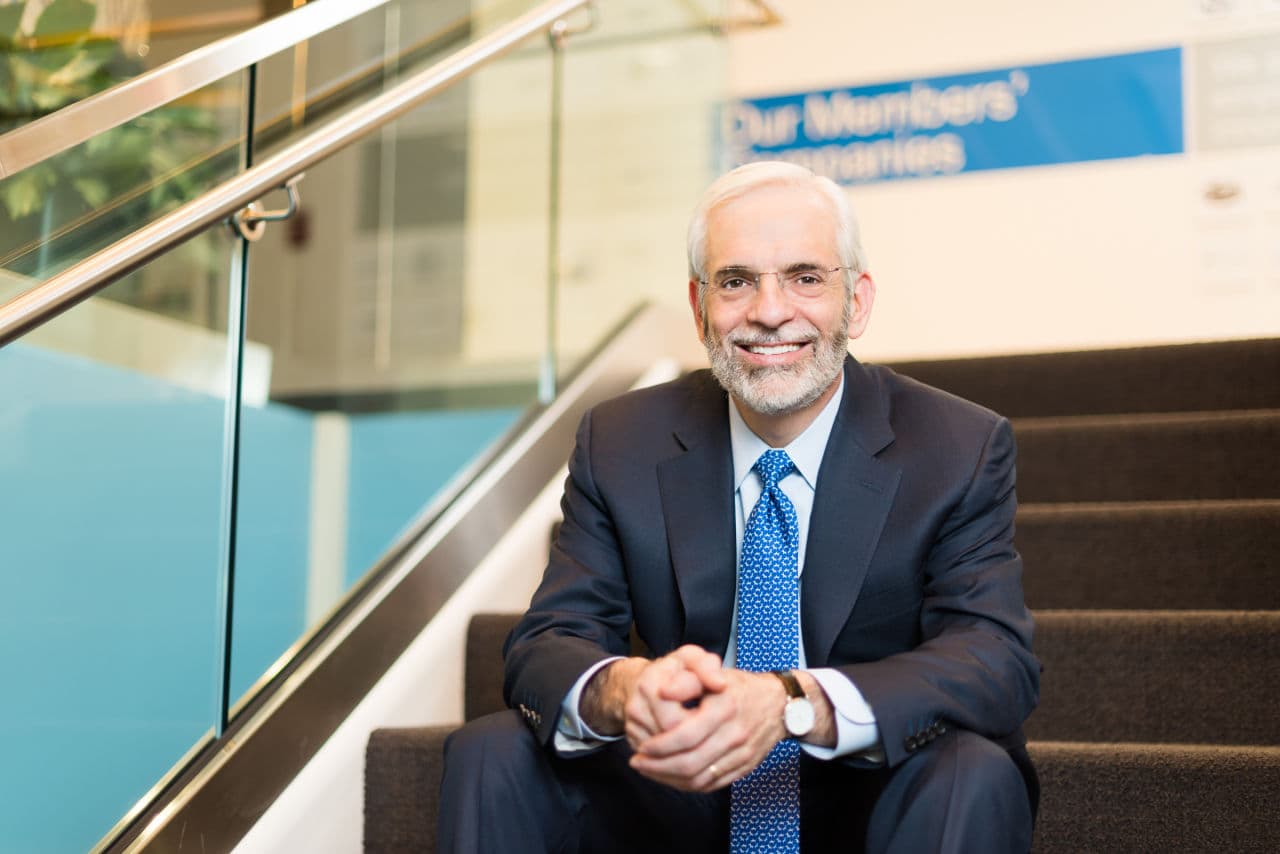Advertisement
Andrew Dreyfus: Taming High Health Care Costs Is The Next Challenge
One of a series of analyses on the 10th anniversary of the 2006 Massachusetts health care overhaul. Andrew Dreyfus is president and CEO at Blue Cross Blue Shield of Massachusetts.

Massachusetts health reform resulted from a remarkable bipartisan effort, and it has largely achieved what we had hoped for -- with one challenging, urgent piece of unfinished business.
The law’s central achievement extended health coverage to the hundreds of thousands of people who had previously gone without the security of insurance. Within two years of the law taking effect, we had a system in place that offered residents coverage regardless of their medical history, employment status, age or income. Almost 96 percent of the state’s residents had health insurance, by far the highest in the nation, and we’ve maintained that level of coverage ever since.
The law’s other notable accomplishment emerged from the way we reached consensus on its main elements, and why we’ve avoided the ferocious partisan debate surrounding “Obamacare.” Our law evolved from a process that brought together elected officials, consumer advocates, business groups and health care and religious leaders around common goals. We examined the facts, listened to all sides, forged difficult compromises, and ultimately united around a law that three governors -- Mitt Romney, Deval Patrick and Charlie Baker -- have supported and successfully implemented. And while the coalition of stakeholders has been fragile at times, we’ve held together on our commitment to amend the law as needed.
Now we need to focus that commitment on the even greater challenge of rising health care costs.
The Blue Cross Blue Shield of Massachusetts Foundation — whose research, coalition building and convening of stakeholders bolstered the early reform efforts — has continuously tracked the law’s impact over the past decade. The foundation’s latest statewide survey found that, even with high levels of coverage, affordability and access to care still pose major challenges, particularly among residents with lower incomes and those with greater health care needs.
While taming health care costs is a far more complex and difficult task than expanding coverage, I’m convinced that our best hope is to change the way we pay for care. Researchers have found that the quality-based payment model Blue Cross developed seven years ago has lowered costs and improved our members’ care. Instead of continuing to rely on our traditional, inflationary fee-for-service system, we are rewarding physicians and hospitals for higher quality, better outcomes and lower costs.
Since 2006, there has never been a serious movement to “repeal and replace” the Massachusetts law. Instead, the policy conversation is about how we can fix, modify and build on our success through both private sector innovation and government oversight. That’s the spirit we need to carry into the second decade of health reform if we are going to achieve our ultimate goal -- a health care system where high-quality care is both accessible and affordable for everyone.
Health Law Turns 10: What Analysts Say:
- Dr. JudyAnn Bigby, former state health and human services secretary
- Elizabeth Browne, director, Charles River Community Health
- Dr. Alice Coombs, former president, Massachusetts Medical Society
- Andrew Dreyfus, CEO, Blue Cross Blue Shield of Massachusetts
- Jonathan Gruber, economist, Massachusetts Institute of Technology
- Jon Hurst, president, Retailers Association of Massachusetts
- Amy Lischko, former Romney administration director of health care policy
- Rick Lord, president/CEO, Associated Industries of Massachusetts
- Lynn Nicholas, president/CEO, Massachusetts Hospital Association
- John McDonough, former director, Health Care for All
- Rep. Jeffrey Sánchez, House chair of the Joint Committee On Health Care Financing
- Nancy Turnbull, associate dean, Harvard T.H. Chan School of Public Health
- Josh Archambault, senior fellow, Pioneer Institute More:
- On Mass. Health Law's 10th Anniversary, Here Are 12 Things To Know